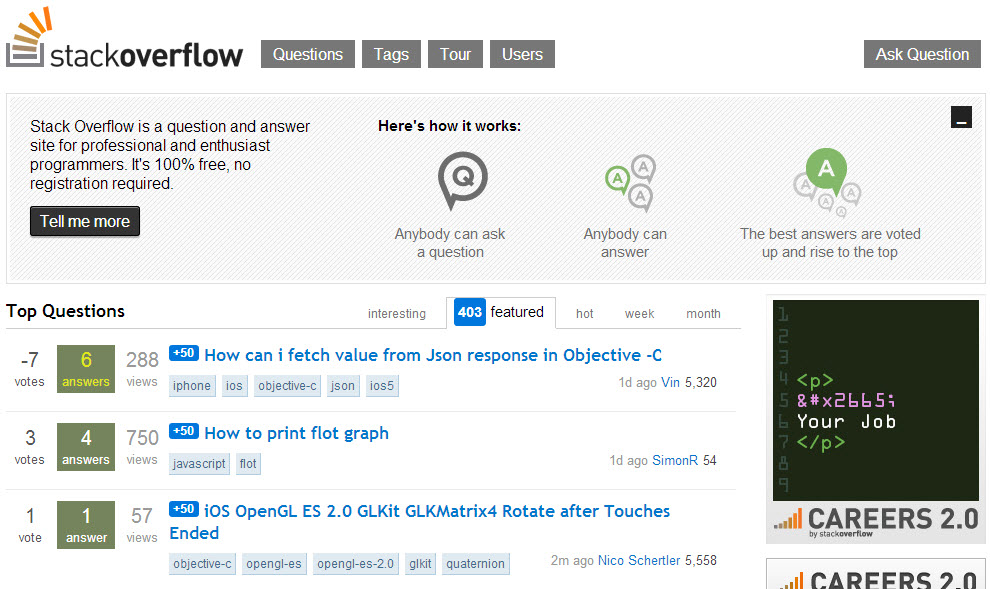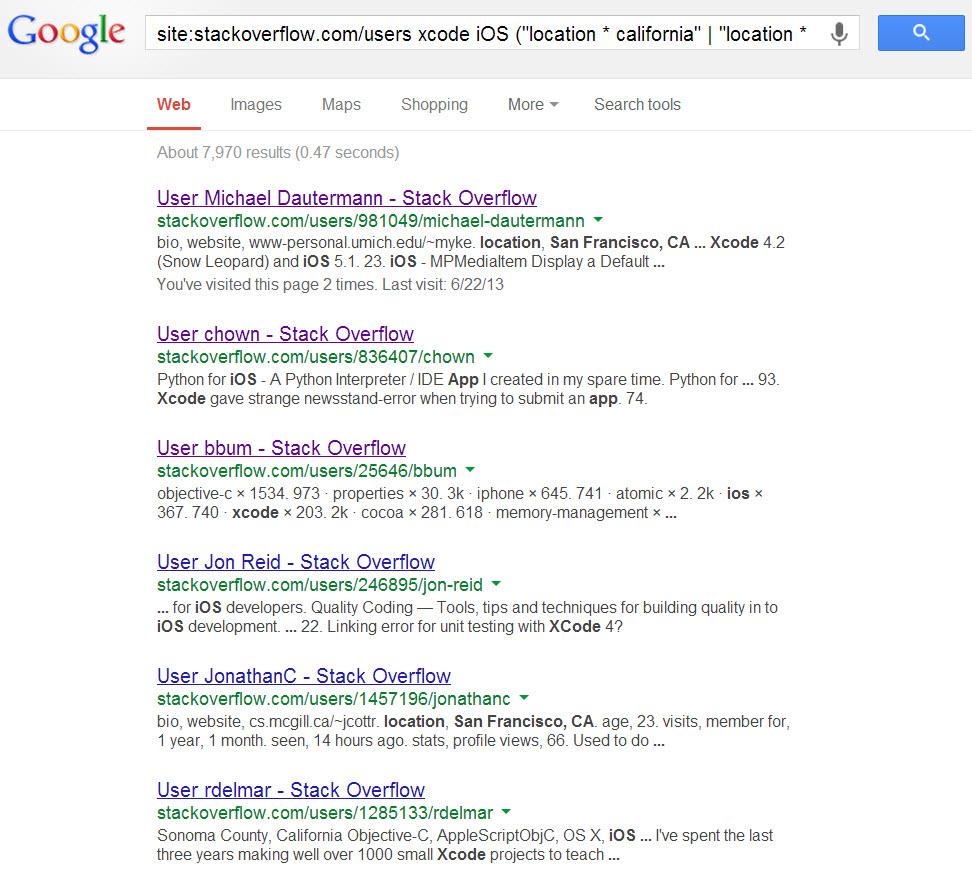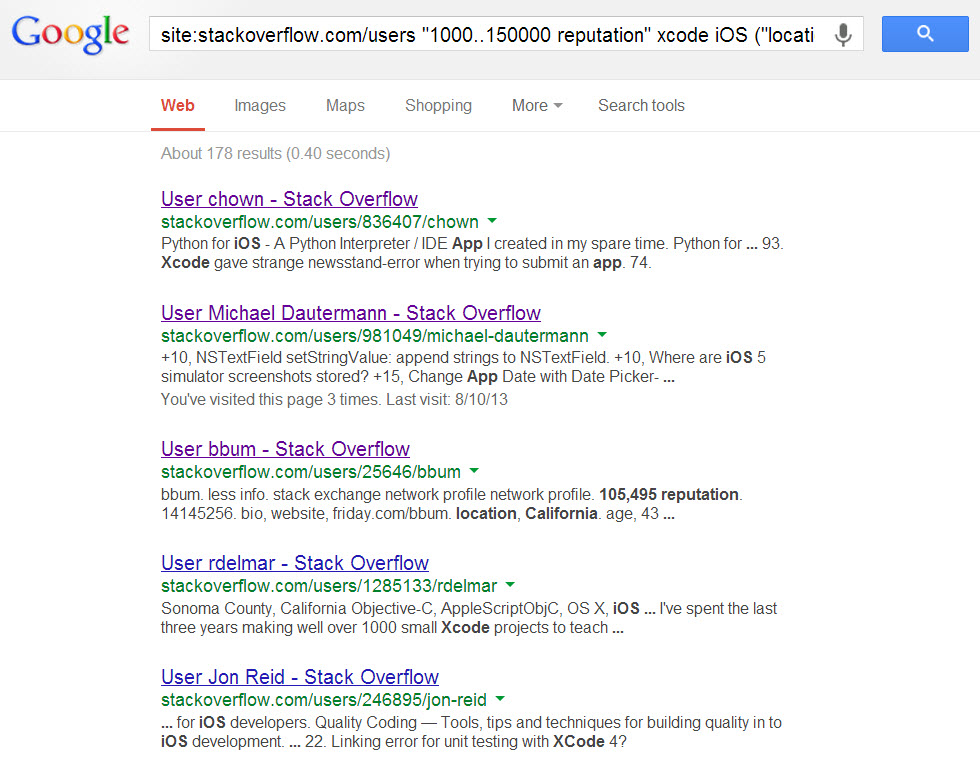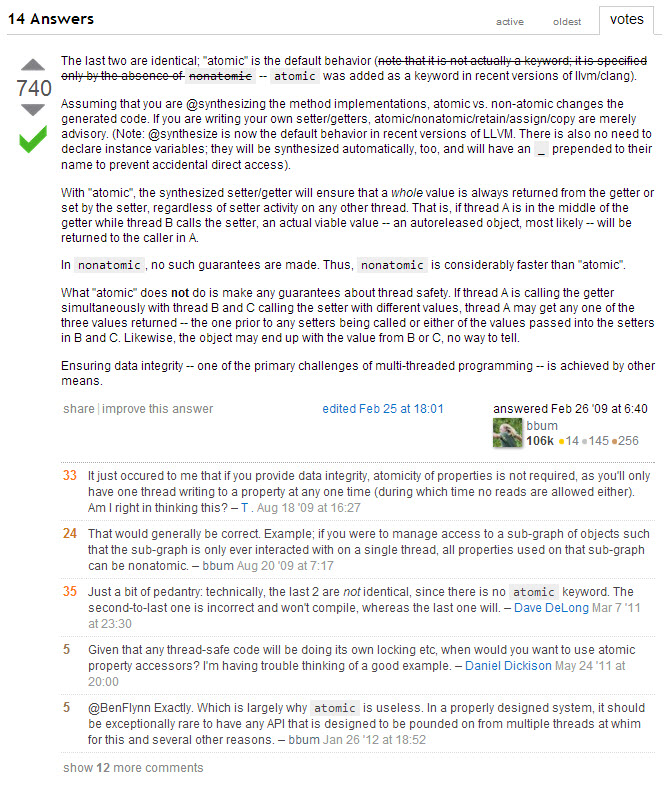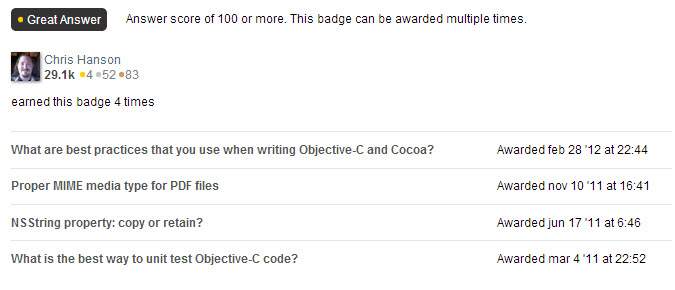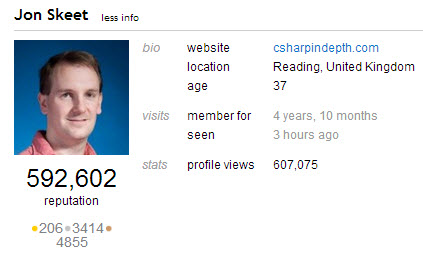Looking to source and recruit software engineers?
One of the best places to find software engineers is Stack Overflow, where nearly 2,000,000 programmers from all over the world ask and answer programming-related questions.
How would you like to know which software engineers might be the most talented and skilled?
A year ago, Peter Kazanjy of TalentBin published an extensive piece on how to source talent on Stack Overflow on the SourceCon website. If you haven’t already read his post, I highly recommend you do so before proceeding further.
I am going to go one step beyond Peter’s article and show you how to find software engineering talent by Stack Overflow reputation and badges, which are earned from peers and activity, offering a degree of independent verification of a software engineer’s knowledge, experience and ability.
Searching Stack Overflow with Google
While you can search Stack Overflow using their user search interface, it’s very limited and you can’t search for people based on location, which is typically critical to most sourcing efforts.
Instead, we can use Google to “X-Ray” search Stack Overflow and find people based on skill and location.
As an example, here is a basic search for Stack Overflow members who have xcode and iOS mentioned their profile and have 1 of 4 locations phrases for California (you could add many more):
As you can see, we get profiles of our target talent pool:
Here’s the first result, with answers for iOS and xcode related questions, and tags of iOS, iPhone, Objective-C, xcode, Cocoa, and many more:
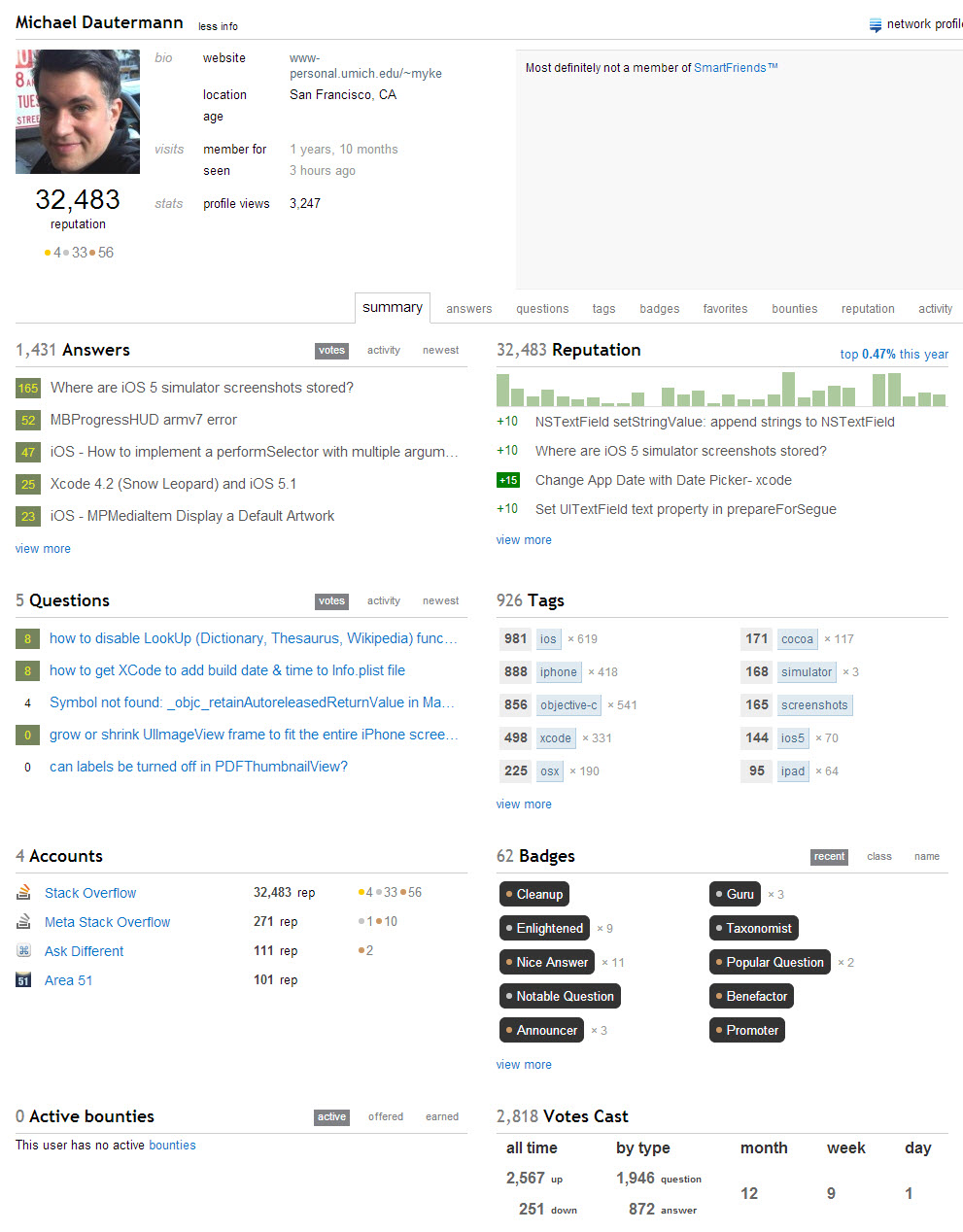
As Michael does, many Stack Overflow users have links to their personal websites where you can often find contact information. When you navigate to his website, Michael recognizes that recruiters might want to take a peek at his resume:
![]()
Searching by Stack Overflow Reputation
You may have noticed the number under Michael’s profile picture – it represents his relatively high Stack Overflow reputation of 32,483.
In fact, he’s in the top 1% for this year.
On Stack Overflow, users gain reputation points when people (other software engineers) vote on their questions, answers and edits.
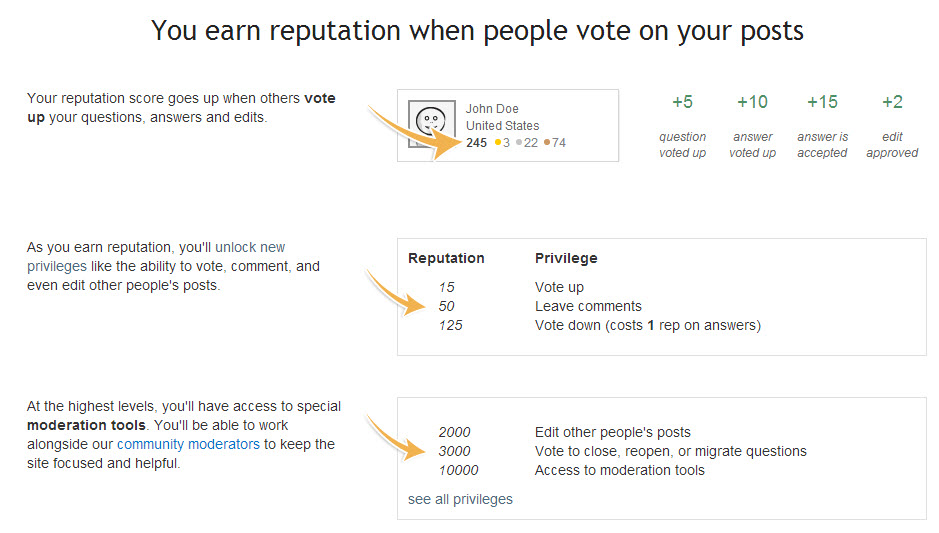
As users earn reputation, they gain access to special privileges on Stack Overflow – this gives you an idea of the scale (1-20,000+):
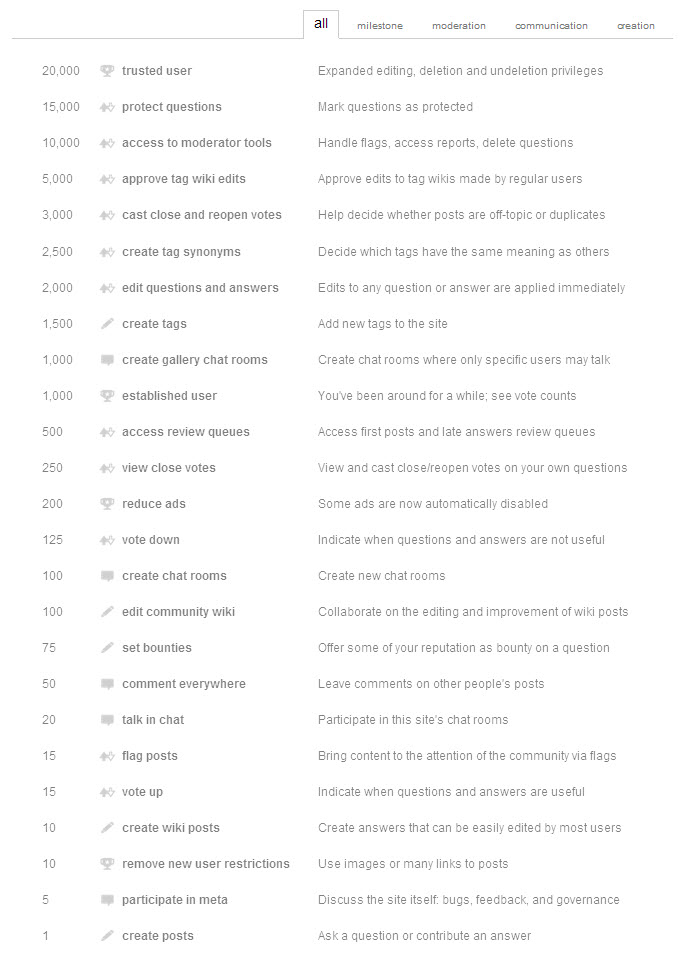
People with high reputations on Stack Overflow are essentially software engineers who ask good questions and provide valuable/helpful answers to other developers’ questions, as judged by their peers.
As such, it can certainly be helpful to be able to search for Stack Overflow users with high reputations, because it offers a degree of independent/peer-level verification of skills, knowledge and experience.
Using Google’s numrange search functionality, we can do exactly that.
If you’re not familiar with Google’s ability to search numbers within a range, you simply separate numbers by two periods without spaces (..) to see results that contain numbers in a given range of things like dates, prices, and measurements – or in our case, reputation on Stack Overflow.
Even some Google search pros may not know that you don’t have to use two numbers – you can use only one number with the two periods to indicate an upper maximum or a lower minimum.
For example, here is a search for users who mention xcode and iOS who have a reputation rank of 1,000 or higher (no upper limit):
If you wanted, you could include an upper maximum, although you would exclude 1 result of a person in the top .01% of Stack Overflow!
Wow – check out bbum with a reputation over 100,000!
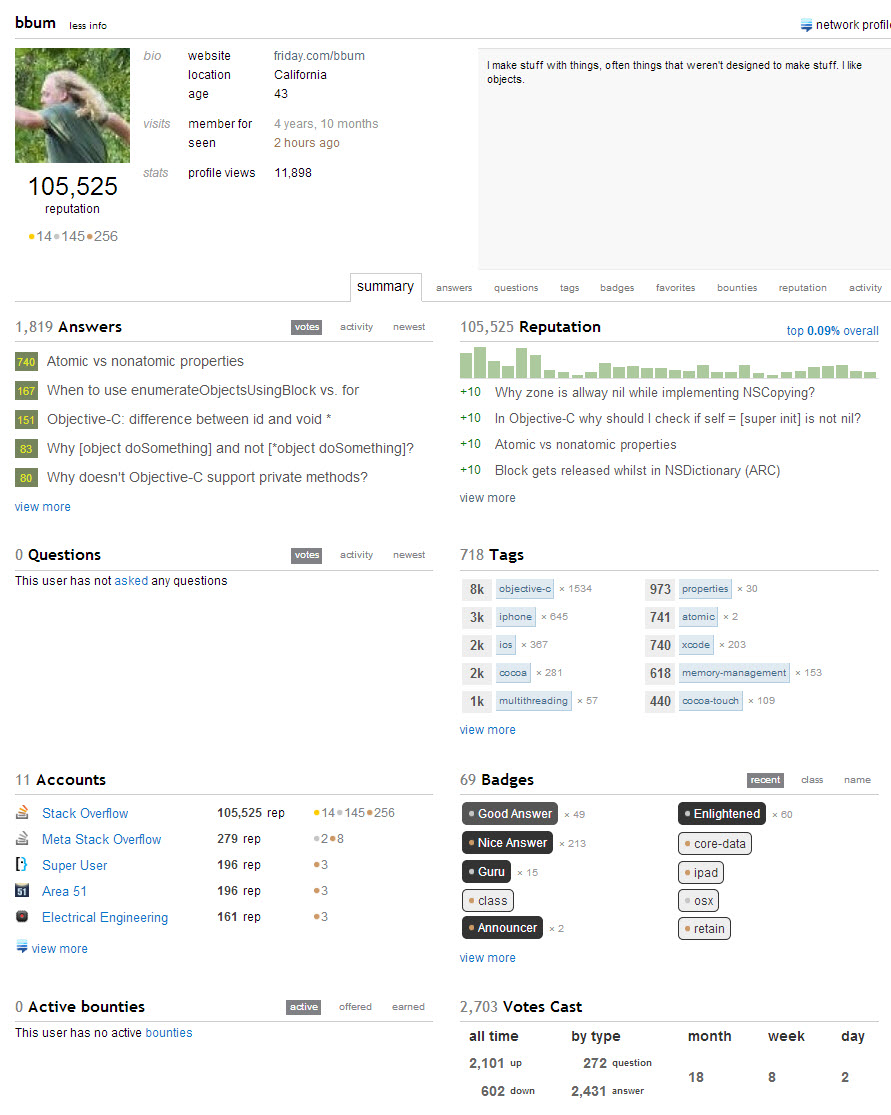
So let’s say you wanted to find out who bbum really is.
You could check out his website which he has linked on his Stack Overflow profile, but you’d actually get further by simply Googling “bbum” where you will find his Twitter profile (among other things) which has his full name that you can cross reference on LinkedIn and see one of the reasons why he might have earned a reputation of over 100,000 (he’s worked at Apple for over 10 years).
Getting back to the Stack Overflow profile, there is significant value in the ability to look at the questions and answers of users, which can not only give you a sense of the depth and breadth of their technical expertise, but also give you insight into their communication skills and style (e.g., addressing others, responding to criticism, concisely explaining complex concepts, etc.).
So don’t just go by high reputation #’s – be sure to explore each user’s questions, answers, and interactions with others.
Here’s one of bbum’s highest ranked answers, which includes 2 responses from him to commenters:
Sourcing by Stack Overflow Badges
Similar to sourcing software engineers on Stack Overflow by reputation, you can also search for users based on the badges they’ve earned through various actions (moderation, participation, asking and answering questions, etc).
You can view the entire list of badges here.
Here is the list of Bronze, Silver and Gold badges you can earn for answering questions:
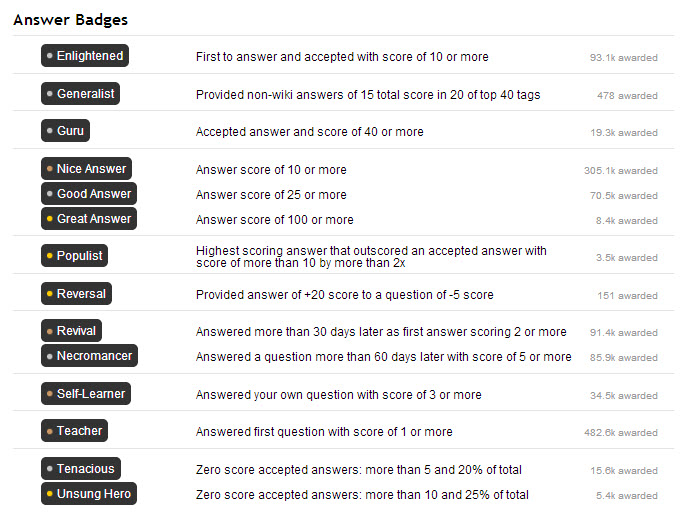
Searching for badges is quite straight forward – simply add one or more to your query.
For example, let’s search for people with some California location phrases who mention xcode and iOS on their profile and who have earned the Gold “Great Answer” badge, which means they’ve achieved an answer score of 100 or more – awarded by other software engineers.
The Great Answer badge has only been awarded 8.4K times – and remember there are about 2M Stack Overflow users and a single user can achieve more than one Great Answer Badge – so this is a relatively rare achievement.
Building upon the same basic example query I’ve been using, here’s the search:
Here is an example result – this person has 36 badges, including 4 Great Answers
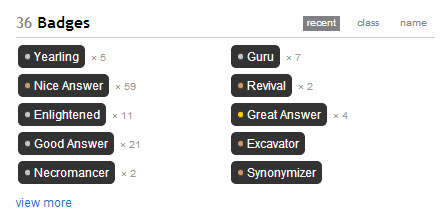
As you can see, 2 of the 4 Great Answers are for Objective-C, so it’s likely they know what they’re doing with regard to Apple-based development.
Users can earn Bronze, Silver and Gold Tag Badges for specific languages and technologies. Here is a list of all of the Gold Tag Badges, which represent people who have earned a total score of at least 1000 for at least 200 answers in a specific tag (e.g., Java, C#, Ruby, etc.).
Here are the Gold Tag Badges in the A’s:
As you can see, some of the Tag Badges are quite rare. For example, there has only been 1 Gold Tag Badge for Active Directory (congrats Marc!):
Final Thoughts
While LinkedIn endorsements can be easily attained, Stack Overflow reputation points and badges are relatively hard-earned in comparison.
Of course, having a high reputation and loads of badges on Stack Overflow doesn’t guarantee quality, and there are fantastic programmers on Stack Overflow that don’t participate heavily, so they are essentially “hiding” behind relatively unimpressive profiles with low reputation points and few or no badges.
Furthermore, there are many software engineers that simply aren’t on Stack Overflow.
However, Stack Overflow does have nearly 2,000,000 software engineering users globally, and being able to source software engineers based on the reputation and badges they have essentially been awarded by their peers is extremely helpful, as it certainly gives you a level of independent verification of knowledge and ability beyond simply looking at a resume or LinkedIn profile.
Lastly, please be thoughtful when developing your location-related search terms, else you will get fewer results than you should as a result of excluding people because you didn’t inclusively for all of the various ways someone can mention living in your target area.
While some people mention their city, some will mention cities that you would not think to include, as large metro areas have 100’s – 1,000+ places that could be listed as a location/address. For example, I’ve never heard of Sebastopol, CA. Luckily, I searched for “location * CA” – which netted me anyone in CA that mentioned CA, regardless of specific city.
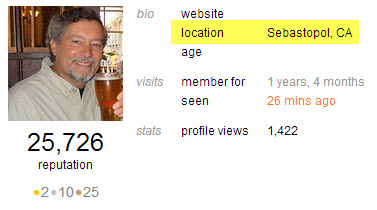
You also have to consider that some people mention their city but not their state, some mention areas (e.g., “Bay Area,” “Silicon Valley,” etc.), and others only mention their country (e.g., Norway).
Having a sound and highly inclusive location search strategy will dramatically increase your results when sourcing on Stack Overflow.
And just in case you were curious to know who has the highest reputation on Stack Overflow, I am pretty sure it’s Jon Skeet from the U.K., with 592,602 at the time of this post. Impressive!
How do you think I found him?
